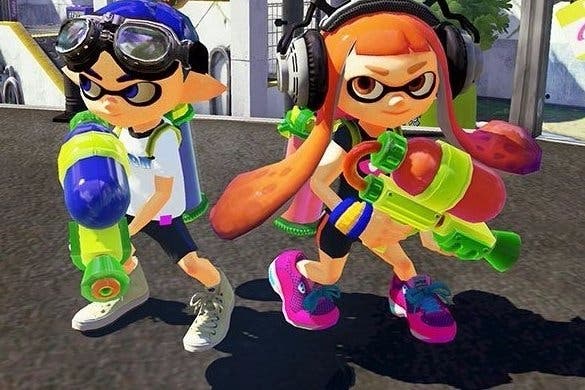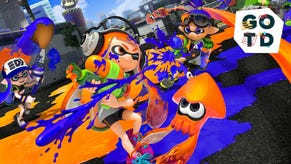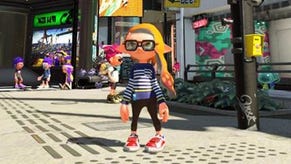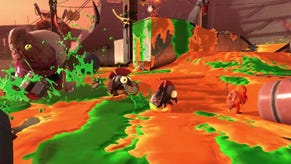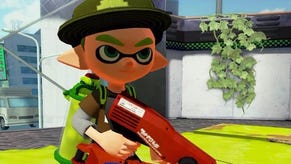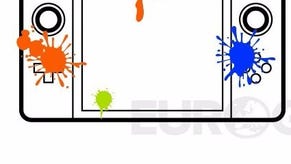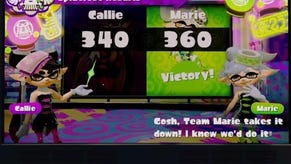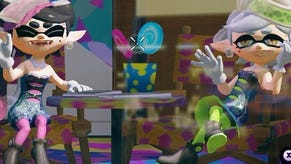Eurogamer's Games of 2015 no. 3: Splatoon
Ink-credible.
What is it that's kept me coming back to the three minute match-ups of Splatoon all year long? Maybe it's in the little details that can make Nintendo games such a joy - the satisfying splosh as you dive into ink, like the wholesome plonk of a hefty pebble being dropped into a pond - or how its scraps are a viscous riot as giddy and giggly as a food fight.
Perhaps it's all that pigment itself, a neat new take on the post-apocalyptic shooter with its tongue firmly in its cheek as it splashes stages in lurid streams of neon purple and pink. Or it could well be the perfectly measured match time itself: three minutes where the tide of colour ebbs and flows, where the energy's always as upbeat as the catchy pop soundtrack that backs it all.
For a game that shows its entire hand in 180 seconds, there sure is a lot to love about Splatoon, Nintendo's multiplayer-focused Wii U exclusive that defied easy definition. A shooter? A MOBA? It's something else entirely, really, Nintendo choosing to dive into the world of the online console game in its own unique, fascinating way. Splosh.
For a game that's so light in tone, it carried an awful lot of weight, too. Nintendo's been criticised in recent years for leaning too heavily on its established names, and its established talent. After the dynamism of the Wii's early days, the Wii U saw it faltering with a concept it failed to sell or, perhaps even worse, exhausted in one unloved launch title. Splatoon answered each and every one of those criticisms: an all-new IP that shunned even a cameo from the likes of Mario; the work of a new generation of talent within Nintendo's Kyoto headquarters; finally, and maybe most importantly, a competitive online game that could rub shoulders with the best of them.
Given a perceived reluctance from Nintendo in the past to embrace online multiplayer in the way we know it in the west, Splatoon was as full-blooded an arrival as you could have hoped for, the support post-release an example others would do well to follow. Free updates kept weapons and maps rolling in (helping bolster an admittedly slim initial offering, a blow softened by the budget price in Europe). By the end of the year, Splatoon had become a game as broad as it was bright. Even more excitingly, it was a game that knew how to craft an event.
Screw Destiny's Iron Banner, and sod all those frequently cynical attempts from other publishers to edge into eSports. Splatfests were where it all really mattered, and where the real questions were answered: eating or sleeping?; cats or dogs?; pizza with pineapple, or pizza without? It's no wonder that within weeks of its release, Splatoon attracted a sizeable, warm-hearted community. In an otherwise bleak year for Nintendo, it put a spring in the Wii U's step.
And I keep coming back to it, finding the perfect antidote to more serious-minded, less generous games. Is it the colour, the energy and the gorgeous feel of spraying all that paint? It's all that and more: at a time when some other games rely on cynical compulsion loops and cash-grabs, one of Splatoon's finest achievements is how it remembers that sometimes there's nothing more important than having fun.
